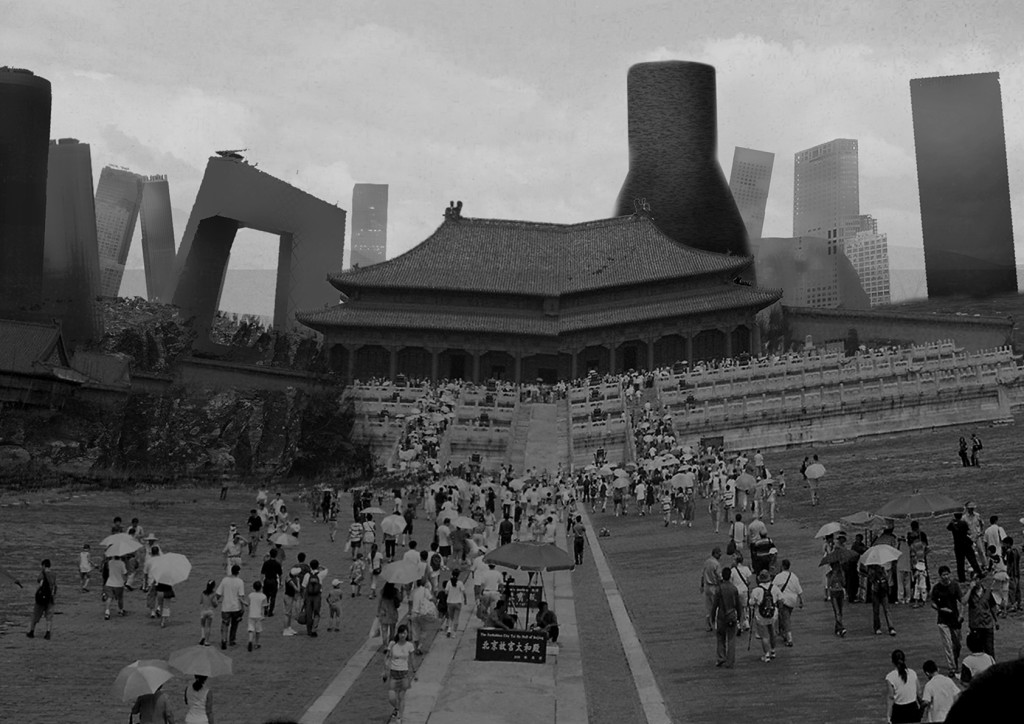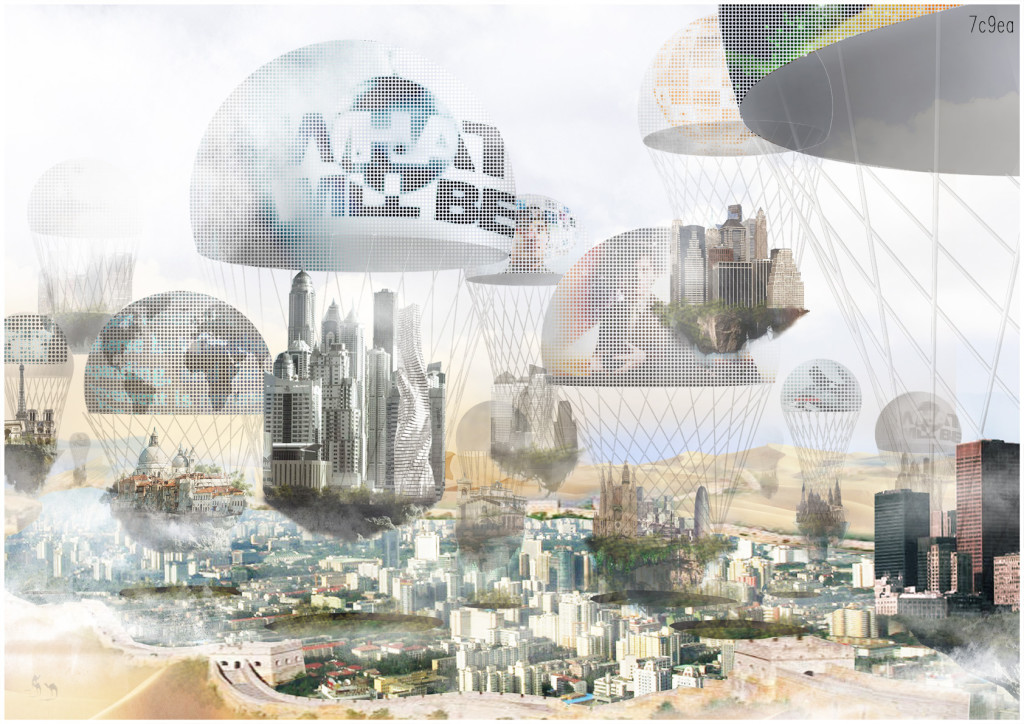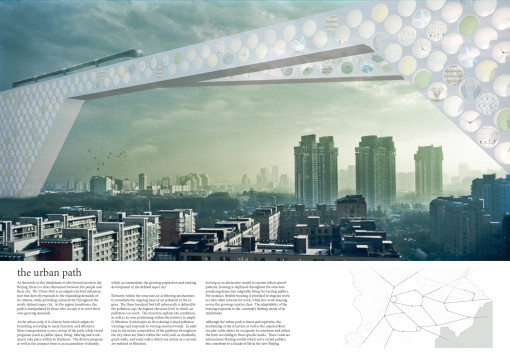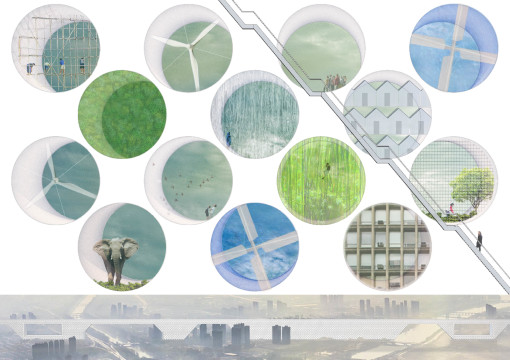Info:
Title: urban path - Code: 28ea2Contest: Beijing / 2014
By: Anthony Harrington - Matthew Radune - Nimet Anwar
Views: 5422 Likes: 2
Votes:
Greg Lynn 9 Ai Weiwei 14 Sou Fujimoto 3 Eric de Broches des Combes 47.5
urban path
As the needs of the inhabitants evolve beyond modern day Beijing, there is a clear disconnect between the people and their city. The Urban Path is an adaptive hybrid infrastructure that directly responds to the expanding demands of its citizens, while providing connectivity throughout the newly defined super city. As the region transforms, the path is manipulated by those who occupy it to serve their own growing demands. At the urban scale, it is a linear form which adapts its branching according to need, function, and efficiency. Mass transportation occurs on top of the path, while varied programs (such as public space, living, filtering and workspace) take place within its thickness. The diverse program as well as the compact form is an accumulator of density, which accommodates the growing population and existing development in the defined super city. Elements within the structure act as filtering mechanisms to remediate the ongoing issue of air pollution in the region. The three-hundred foot tall urban path is defined by the pollution cap, the highest elevation level to which air pollution can reach. The structure exploits site conditions as well as its own positioning within the territory to amplify filtration. It intercepts air flow during critical pollution warnings and responds to varying seasonal winds. In addition to the urban composition of the pathways throughout the city, there are filters within the wall (such as windmills, green walls, and water walls) which use nature as a secondary method of filtration. Serving as an alternative model to current urban sprawl patterns, housing is deployed throughout the structure producing dense, but adaptable living for varying publics. For instance, flexible housing is provided to migrant workers who often relocate for work, while live-work housing serves the growing creative class. The adaptability of the housing responds to the constantly shifting needs of its inhabitants. Although the urban path is linear and repetitive, the positioning of the structure as well as the unprescribed circular voids allows its occupants to transform and utilize the form according to their specific needs. These voids are autonomous floating worlds which serve varied publics, but contribute to a facade of life in the new Beijing.








